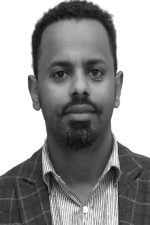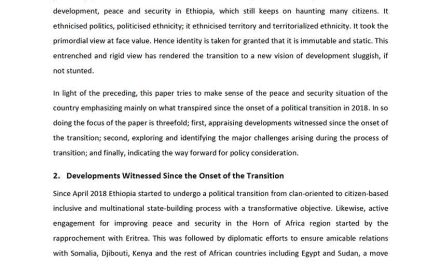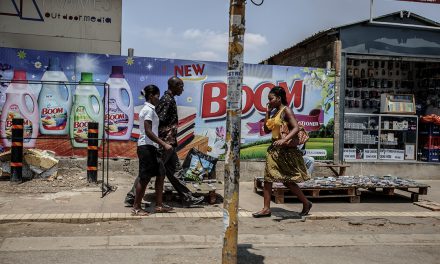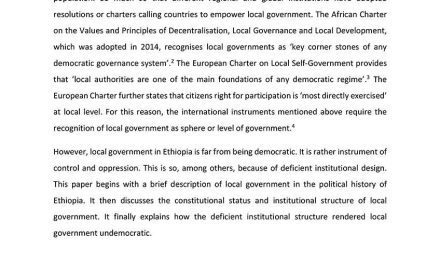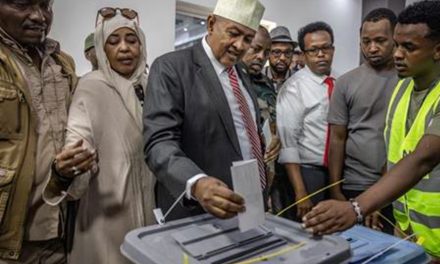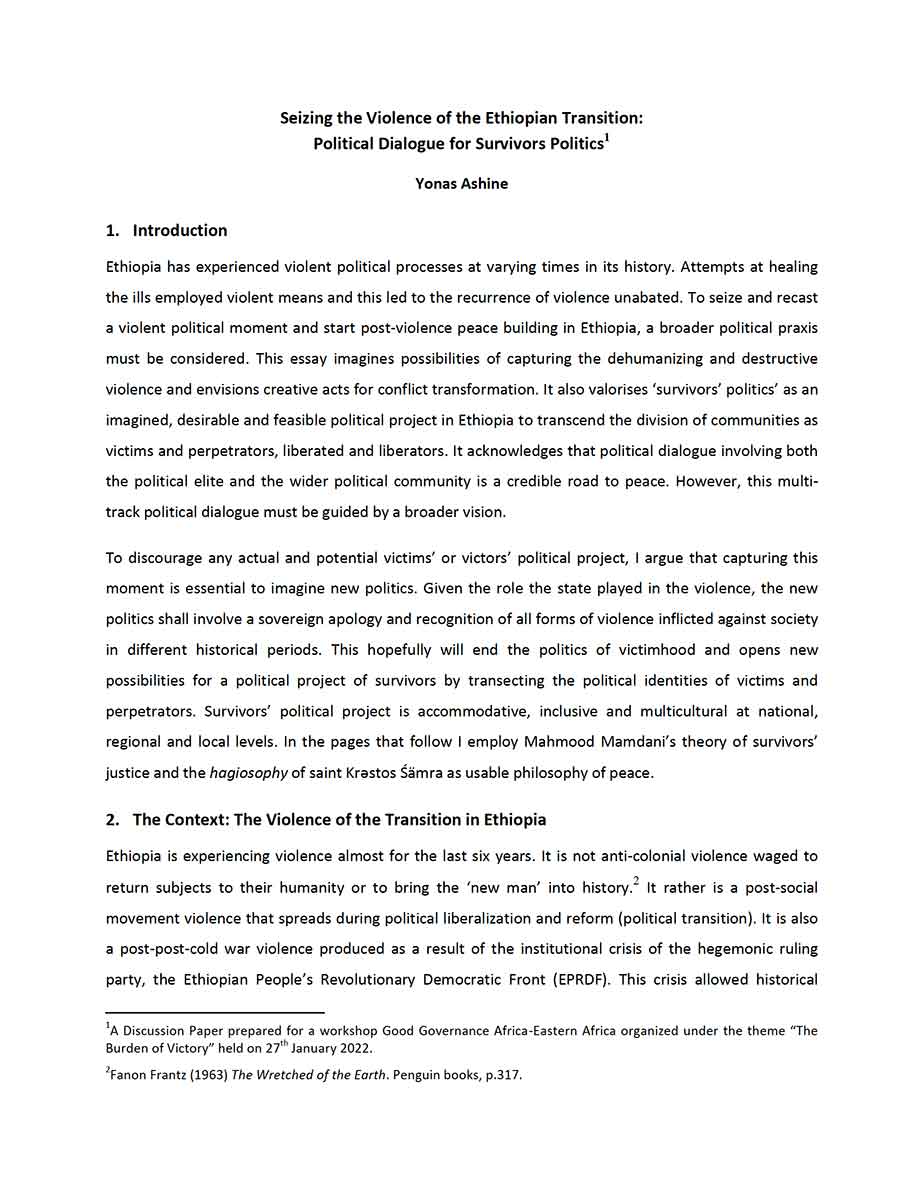
Ethiopia has experienced violent political processes at varying times in its history. Attempts at healing the ills employed violent means and this led to the recurrence of violence unabated. To seize and recast a violent political moment and start post-violence peace building in Ethiopia, a broader political praxis must be considered. This essay imagines possibilities of capturing the dehumanizing and destructive violence and envisions creative acts for conflict transformation. It also valorises ‘survivors’ politics’ as an imagined, desirable and feasible political project in Ethiopia to transcend the division of communities as victims and perpetrators, liberated and liberators. It acknowledges that political dialogue involving both the political elite and the wider political community is a credible road to peace. However, this multi- track political dialogue must be guided by a broader vision.
To discourage any actual and potential victims’ or victors’ political project, I argue that capturing this moment is essential to imagine new politics. Given the role the state played in the violence, the new politics shall involve a sovereign apology and recognition of all forms of violence inflicted against society in different historical periods. This hopefully will end the politics of victimhood and opens new possibilities for a political project of survivors by transecting the political identities of victims and perpetrators. Survivors’ political project is accommodative, inclusive and multicultural at national, regional and local levels. In the pages that follow I employ Mahmood Mamdani’s theory of survivors’ justice and the hagiosophy of saint Krəstos Śämra as usable philosophy of peace.
Yonas Ashine is an Assistant Professor of Political Science and International Relations at Addis Ababa University (AAU), Ethiopia. He earned his PhD in Interdisciplinary Social Studies (Political and Historical studies) from Makerere Institute of Social Studies, Makerere University, Uganda. He received his BED in History from Mekele University; BA and MA in Political Science and International Relations from AAU. His research interest includes political theory, and comparative politics of state-society relations in Africa and from Africa. His writings and research focus on power and resistance; formation of state and subjectivity at national and global realm across time.

